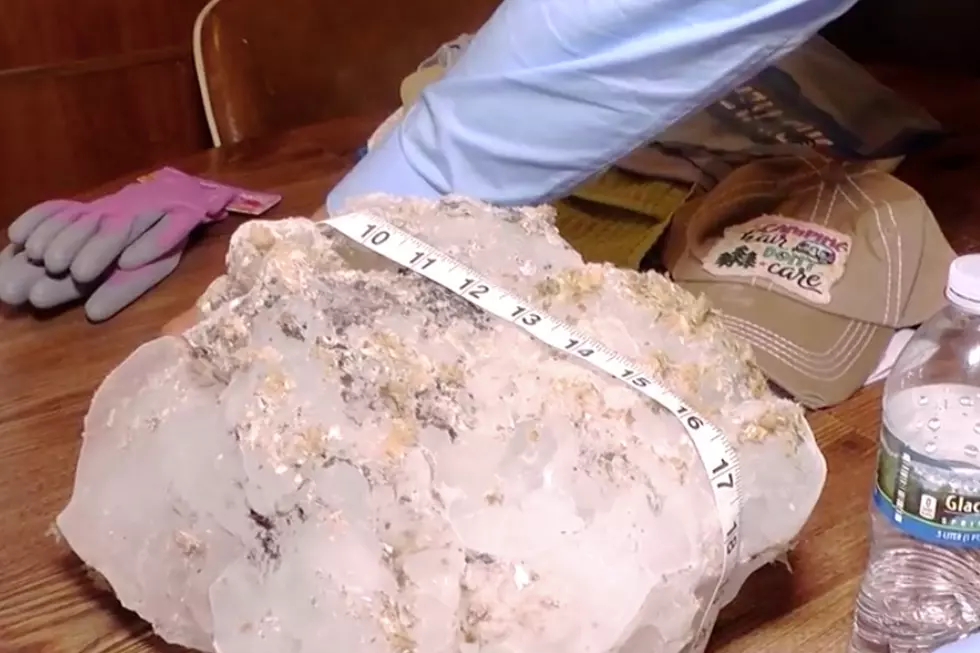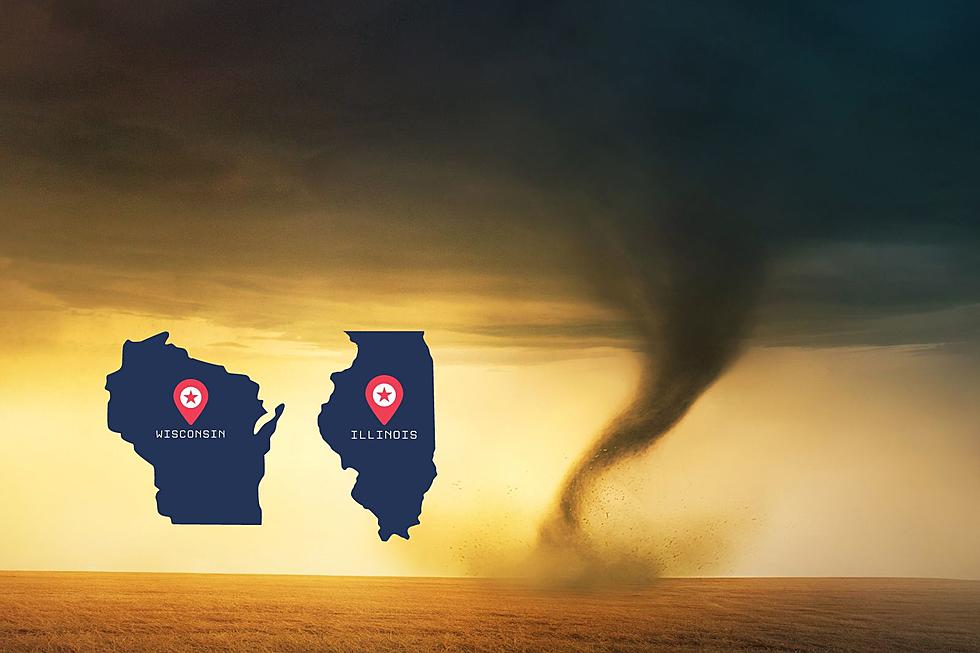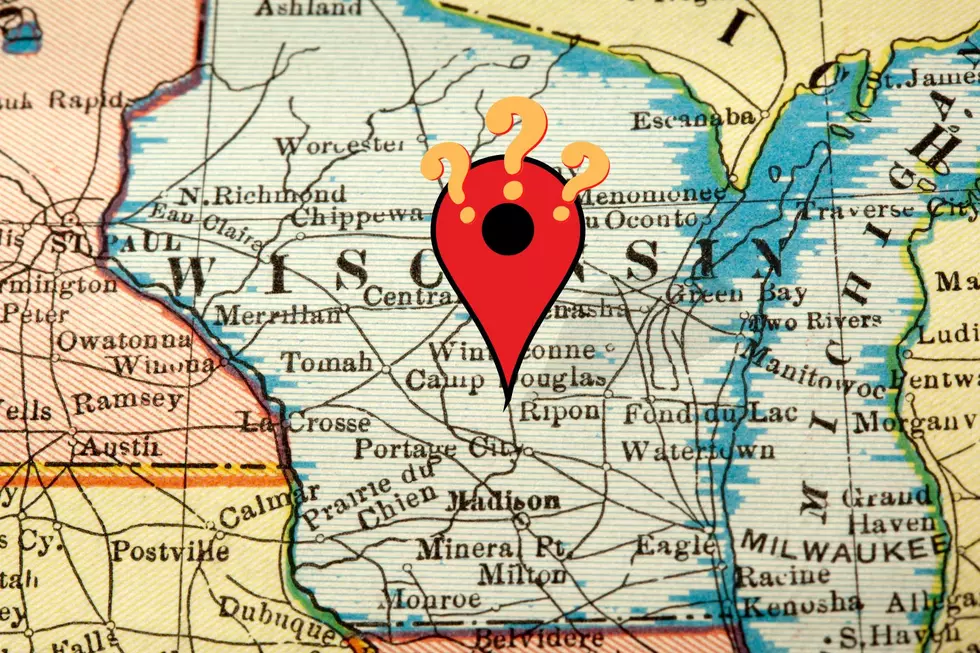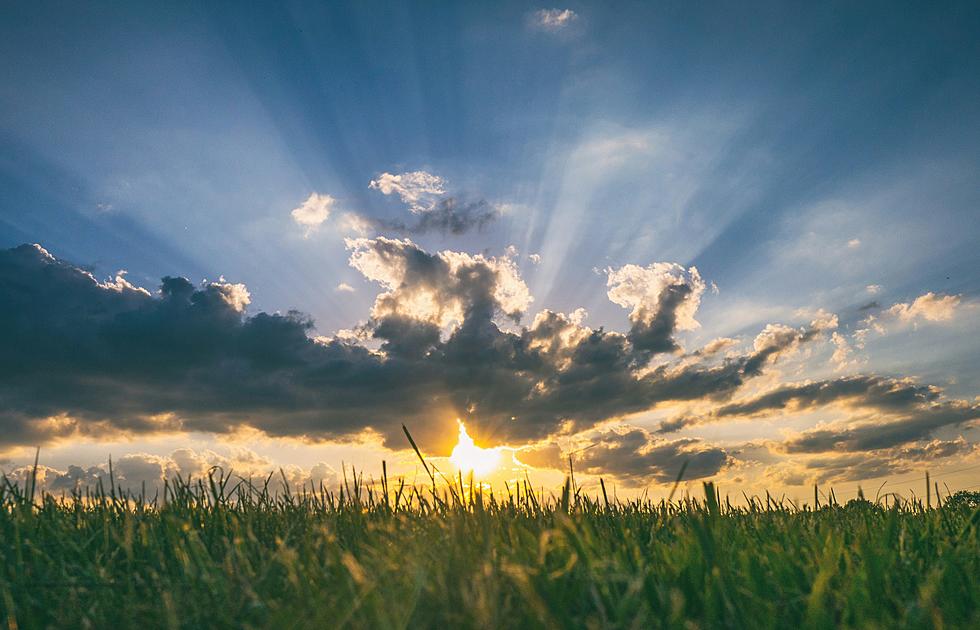
Giant Chunk of Ice Smashes Through a Wisconsin Roof Narrowly Missing Homeowner’s Head
Even the National Weather Service is miffed by this so you're not the only person exclaiming, "What the hail?"
Joking aside, this could have led to a deadly outcome. Thankfully, this was not the case.
A Wisconsin man is lucky to be alive after a massive chunk of ice fell from the sky crashing through the roof of his room into his bedroom. Talk about one heck of an alarm.
A local news station described it as cannonball-sized but I have no idea what one actually looks like, how about a 12-pound bowling ball? That is easier for most of us to relate to, I think.
The homeowner, Ken Millermon, told WQOW he might be dead had it hit him square on his head.
I would've probably been out, kicked the bucket [if it landed on me]. As soon as that came through, everything else was like dust of insulation. I couldn't see.
The chunk of ice, which weighed in at a whopping 12.6 pounds, smashed through the home's roof and a bedroom ceiling. (Why do I picture a cartoon anvil busting through the roof?)

But where did it come from?
In the words of a smart-mouthed elementary student, "The sky. Duh." No, but seriously, what were the environmental circumstances? A nearby neighbor told the tv station there were storms earlier that morning and a "big black cloud" when the ice chunk fell.
The National Weather Service confirmed the storm wasn't big enough to produce hail that big. So, what the hail happened? For now, the answer remains a mystery.
LOOK: The most expensive weather and climate disasters in recent decades
KEEP READING: Get answers to 51 of the most frequently asked weather questions...
More From 98.1 KHAK









